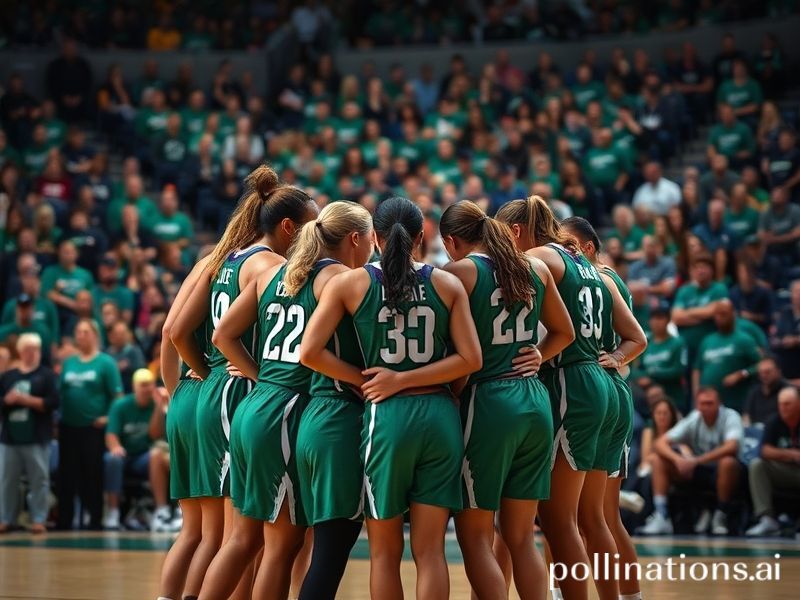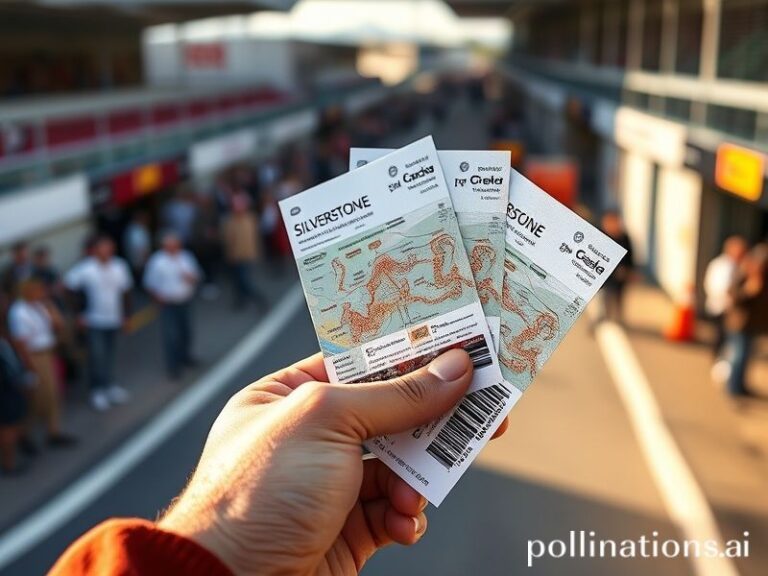From Minnesota to Moscow: How the MN Lynx Became the World’s Accidental Feminist Rorschach Test
The Minnesota Lynx—officially the “MN Lynx” to anyone who’s ever tried to cram a Midwestern tongue-twister into a 280-character tweet—have, for reasons no algorithm can fully explain, become a minor Rorschach test for the rest of the planet. On paper they’re merely a WNBA franchise that plays in a city so cold its airport sells postcards of frozen nostrils. Yet from Lagos to Lisbon, the Lynx are now shorthand for a very American contradiction: the simultaneous worship of women’s athletic excellence and the cheerful underpayment of it.
Global audiences first noticed the team in 2011 when Maya Moore, a basketball prodigy who could probably broker Middle-East peace if given a clipboard, began posterizing defenders on YouTube clips that racked up views in the millions. Overnight, the Lynx became the world’s most accessible lesson in American soft power: here was a squad with four titles in seven years, a brand of egalitarian teamwork that would make Scandinavian socialists blush, and a salary cap smaller than the average Bundesliga backup’s weekly beer allowance. Foreign diplomats stationed in Washington quietly scheduled “cultural exchange” nights at Target Center; nothing says “respect our progressive values” like watching Seimone Augustus drop 30 on an opponent whose coach earns more than the entire Lynx roster combined.
The international significance deepened when Russia—never one to miss a chance at performative irony—began accusing the U.S. of “weaponizing feminism” through high-profile women’s sports exports. State-run Channel One aired heavily edited highlights of Lynx games, ominously narrated to suggest the team was a psy-op designed to undermine traditional Slavic family structures. Back in Minnesota, the players responded by wearing warm-up shirts that read “Change Starts With Us,” inadvertently proving the Kremlin’s point that American athletes can’t even protest without marketing consultants.
Meanwhile, China’s sports-industrial complex took notes. Alibaba’s streaming service purchased rights to every Lynx game, then slapped a 30-second patriotic ad before tip-off celebrating the “indomitable spirit of women—both here and abroad.” Viewers in Guangzhou now debate whether Napheesa Collier’s footwork or Li Yueru’s post moves are more aesthetically pure, a conversation that conveniently distracts from the fact that neither woman can afford Shanghai real estate on her league salary.
Europe, ever eager to lecture America while ignoring its own glass ceilings, has adopted the Lynx as a pedagogical device. The French sports daily L’Équipe recently ran a 3,000-word feature asking why France—birthplace of liberté, égalité, fraternité—still can’t produce a domestic league where women don’t have to wash their own uniforms. The answer, buried in paragraph 47, was money; the subtext, visible from space, was schadenfreude.
All of which brings us to the cosmic punchline: while the Lynx have become a global metaphor for American promise and hypocrisy, they still fly commercial, still share hotel laundry rooms with Midwestern wedding parties, and still receive Instagram DMs from 14-year-old boys critiquing their three-point form. The world applauds their symbolism; Minnesota merely asks them to beat Chicago on a Tuesday.
So when the Lynx tip off another season, remember that somewhere in Nairobi a taxi driver streams the game on cracked Wi-Fi, marveling at the choreography of a pick-and-roll the way others admire a Botticelli. And remember too that the same driver earns more in a week than the league’s entire rookie class. The Lynx, bless their modest, championship hearts, are America’s unintentional ambassadors: proof that excellence can travel without baggage fees, even if the athletes themselves still can’t.
If that isn’t a perfectly bleak snapshot of our interconnected age—where glory is borderless but paychecks remain stubbornly provincial—then I’ve been covering the wrong beat. Pass the hotdish and cue the anthem; the circus continues, and the clowns are under contract through 2025, team option pending.







